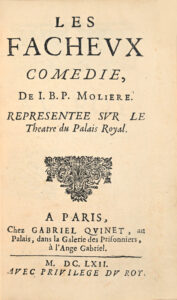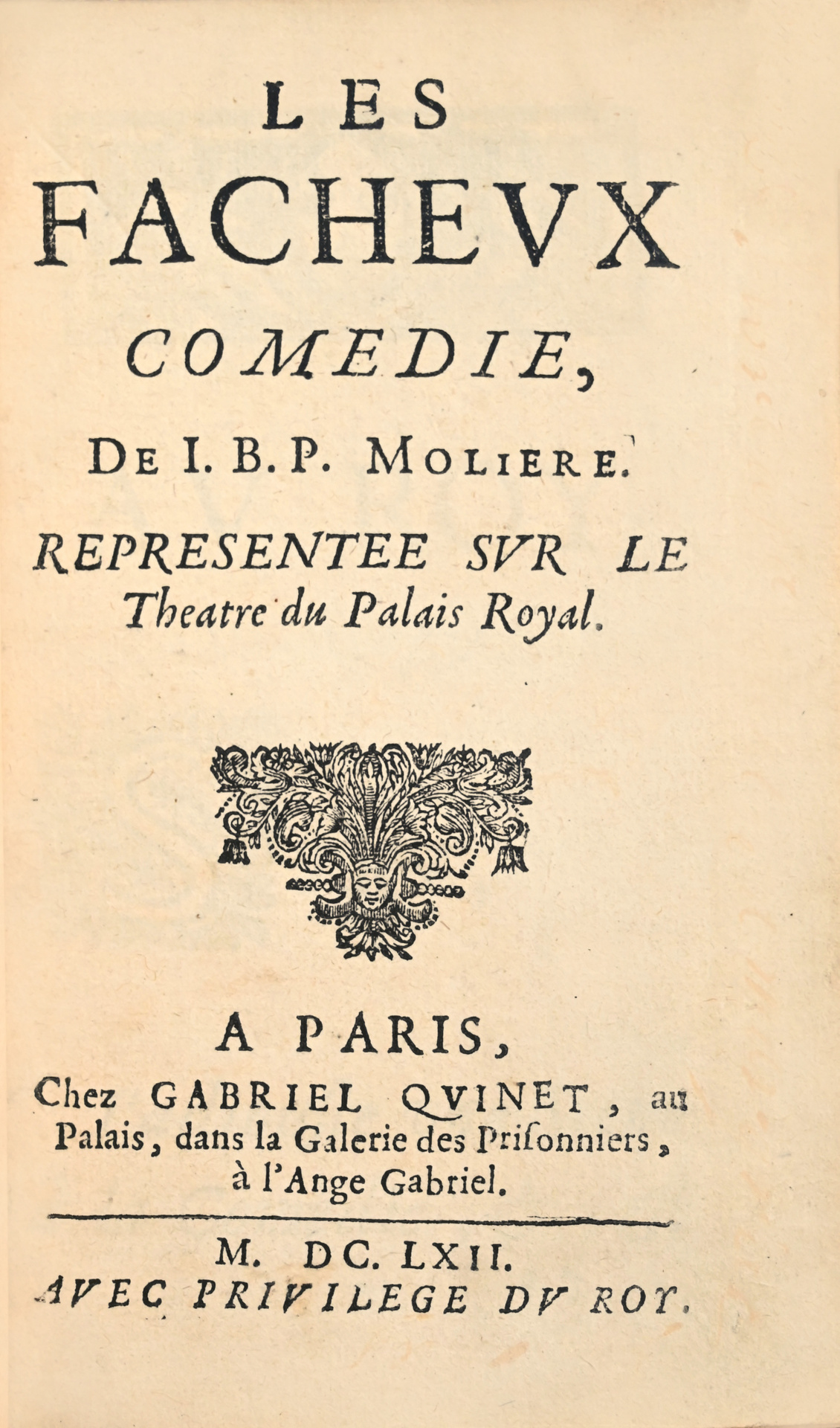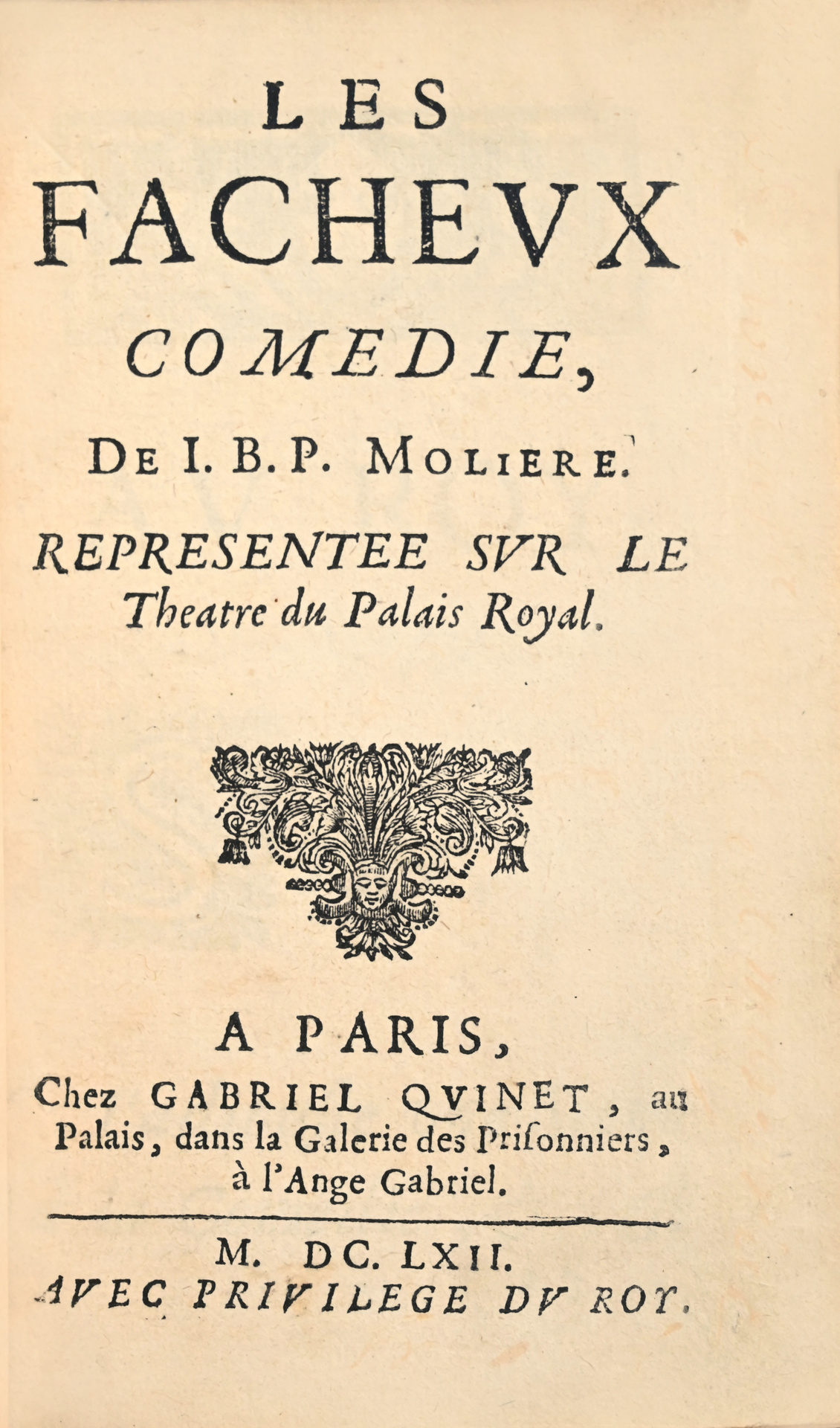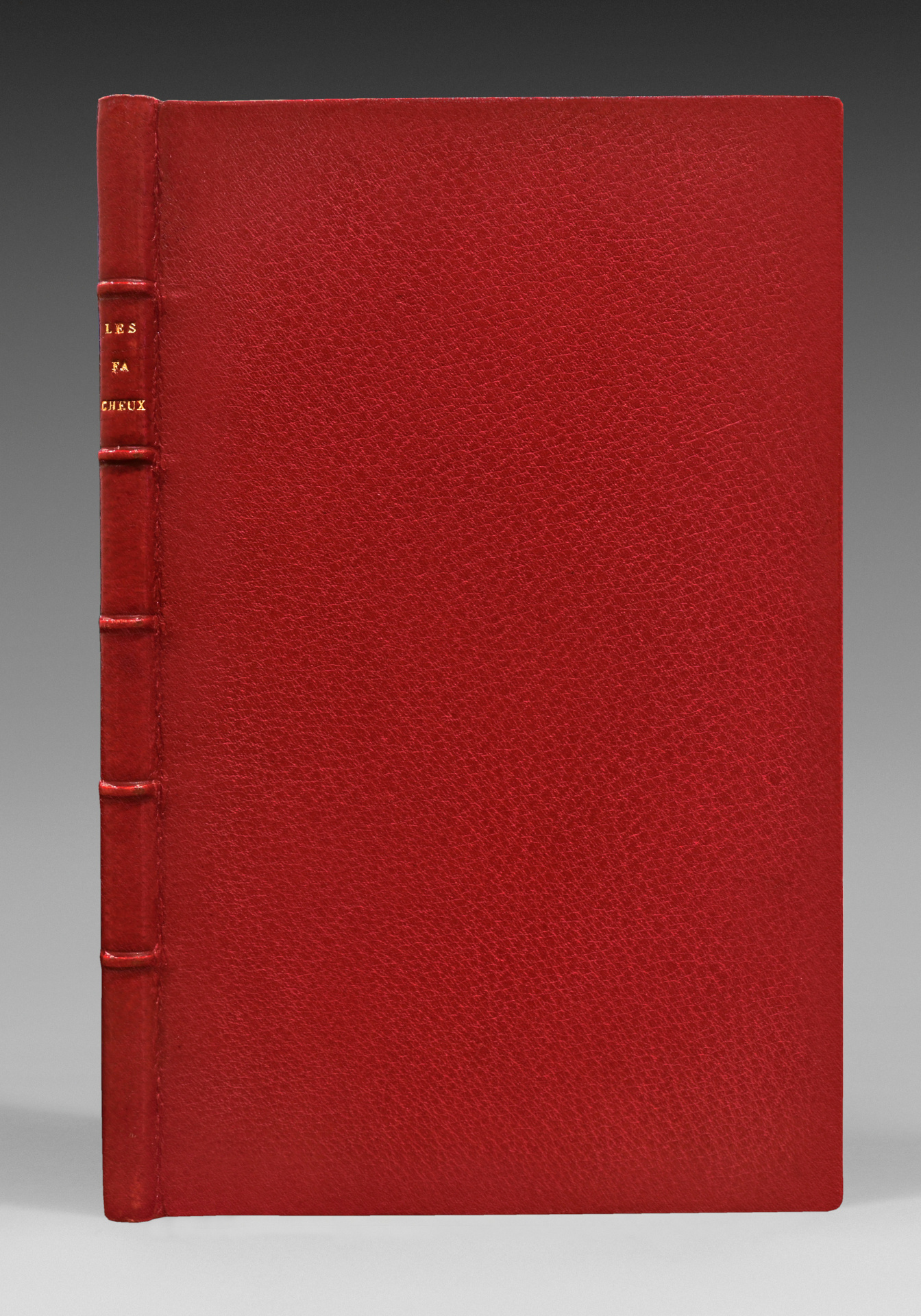Paris, Gabriel Quinet, 1662.
12mo [144 x 88 mm] of (11) ll., pp. 9 to 76, (1) l. with the extract of the privilege.
Full red Jansenist morocco, spine ribbed, inner gilt border, gilt edges. Binding signed Trautz-Bauzonnet.
Precious first edition of the ” Facheux ” first comedy-ballet composed by Moliere.
Guibert, I, p.75 ; Lacroix n°7; Tchemerzine, IV, 770 ; Ruble, 357.
This comedie-ballet was first performed on August 17, 1661 at Vaux-Le-Vicomte in Fouquet’s castle, in the presence of Louis XIV.
This play by Moliere is among the most sought-after, its printing having been disturbed by the arrest of Fouquet.
“A singular anomaly is noticed in the pagination.
The copy is composed of quires comprising 6 leaves each. The first quire signed A begins with the title and ends on the verso of the Epistre au Roy, which is blank. The second quire signed A begins with the Preface and ends on page 10, that is to say on the back of the first leaf of the piece. Usually, this page 10 should be numbered 12, the recto being 11. However, these 2 pages do not exist since the pagination jumps from 10 to 13, page 13 being signed B, beginning of the third quire.
Several assumptions were made, but in our opinion, those of Paul Lacroix and Le Petit seem to us to be the only valid ones.
It is indeed probable that the play having been performed first at the festival of Vaux in the castle of the Superintendent Fouquet a dedication had been prepared by Molière for the intention of the latter.
The Preface and the Prologue were perhaps also intended to allude to Fouquet. But the disgrace of the Superintendent having occurred suddenly three weeks after the performance, on September 5 to be exact, Molière had to wait, before deciding to take his privilege and have the play printed, to be sure of the King’s final attitude towards his Superintendent. This may explain the delay in printing the play (18 February 1662).
When he was certain that the King persisted in his attitude he quickly modified his dedication, the Preface and the Prologue and suppressed the dedication to Fouquet. The irregularity of pagination can have no other cause than the haste with which these changes were made.” (Guibert, I, p.77)
The Privilege, dated February 5, 1662 is granted to Sieur Molière, then yielded by him to Guillaume de Luyne, who shared it then with Ch. de Sercy, Jean Guignart (sic), Cl. Barbin and G. Quinet.
The imprint is dated February 18, 1662.
“Le Petit notes in his Bibliographie des Principales Editions Originales (1888) that he has not seen a copy whose last page is numbered 52 instead of 76.
We are quite surprised by this observation because all the copies we have seen, except one, have the pagination error, including ours. There are therefore two issues of this edition, one with the error, the other without the error.” (Guibert).
In fact, “Les Fâcheux” were conceived, composed, learned and performed in 15 days during the sumptuous festivities that took place at Fouquet’s palace. The comedy pleased Louis XIV so much that he deigned to collaborate. Molière took advantage of the King’s advice and modified his play accordingly.
“Les Fâcheux” inaugurate the series of plays with great spectacle, mixed with ballets, which pleased Louis XIV, and which were to lead 10 years later to the formula of the opera. The comedy has a clearly satirical turn; all these annoyances are characters of the French court who were to be very recognizable.
The charm of the play comes from the pungent succession of scenes taken on the spot.
One of Moliere’s most sought-after plays.
Among the 17 original editions of Molière owned by Guy Pellion, all bound in nineteenth century morocco, Les Facheux reached the highest bid, along with Le Tartuffe, Les Fourberies de Scapin and L’Etourdi.
In the catalog of Morgand et Fatout bookshop of May 1876, the original editions of L’Estourdy and Les Fâcheux, both bound in morocco by Trautz-Bauzonnet, were respectively listed at 1,350 and 1,800 gold F.
A fine copy from Bernard Jean library.




